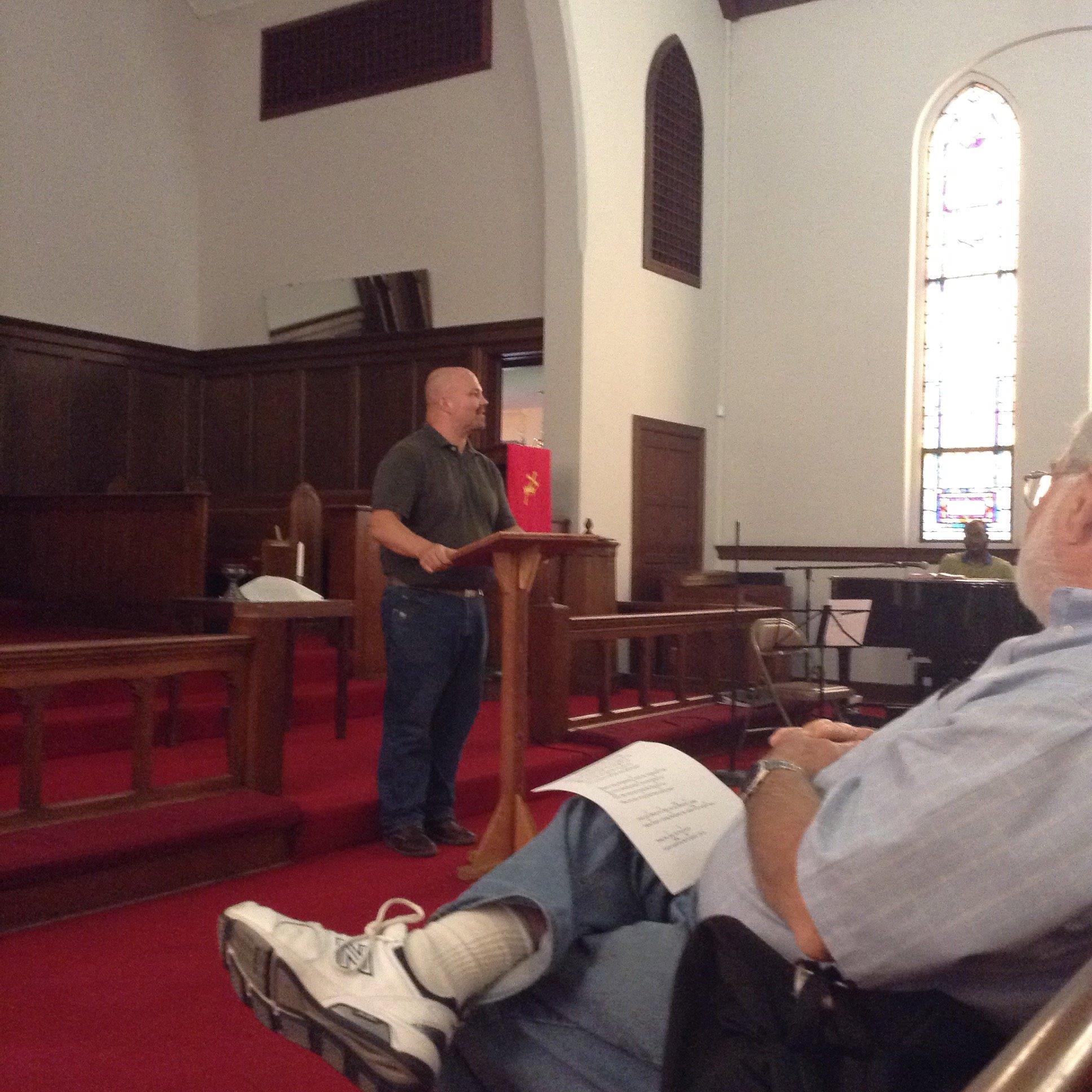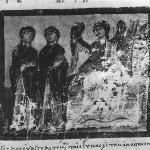In the year 1181, Francis was born – a child of wealth and privilege. His father was a wealthy clothing merchant, and so he never lacked or suffered. One day, the man we would later call St. Francis was riding along on horseback when he met a leper. In those days, leprosy was the most dreaded of diseases. Not only was it a death sentence, but it was a horrible way to die – lesions, puss, and the putrid smell that followed you made you a social outcast.
Under what would later be called the guidance of the Holy Spirit, Francis got off his horse, overcame his revulsion and disgust and gave the leper a full-on body hug. Then, he gave the leper all his money, hopped back on his horse and rode away.
Later, when Francis went to Rome, he was at St. Peter’s tomb and saw the beggars there. In a fit of piety, he swapped clothes with a beggar and sat there with the other beggars, begging for his food.
Thus started the career of the holy man who would go on to found an order of other holy men, who beg their own way, who devote themselves to poverty, who live among the poorest of the poor. It’s obvious from reading the story that the encounter with the leper transformed Francis.
It’s clear what was in it for Francis. He experienced the leper and, as a result, experienced personal transformation. But how did it turn out for the leper? He got some money (which he did not ask for). He got a hug (which he did not ask for – and let’s be honest: Random people coming up and hugging you is just weird). He’s forever recorded in history, but not by his name. He’s only notable for his disease, for how he was “wrong,” for how he is the “other.”
He was, as this story is told, reduced to a prop in the transformation of Francis. And as a reward for getting to play a part in the transformation of Francis, he got competition, for now Francis was begging alongside him. And Francis has the decided advantages of having rich friends, and not having leprosy.
My problem with this story is that we naturally tend to identify with Francis. I mean, even if we would not touch a leper ourselves, we want to think we’re the sort of person who would touch a leper.
This story has been used as an example of how the act of mission can change hearts, and we’ve been listening. Just the other day, I received a fundraising letter from a teenager who was going off to somewhere in South America on a mission trip, and the key “selling point” was how much this was going to change the life of the teenagers that go on this trip.
When I read that, I thought back to the Francis story, and all I could think of was: OK, I see what’s in it for the people going on the trip, but, well, what’s in it for the leper.
# # #
It happens all the time.
I am introduced to an “urban missionary” who “has a heart” for the inner-city, and then tells me how they are “bringing God to the inner city”. Then they tell me how they are planting a church in a rented space (ignoring the churches on every corner). One person once, in a discussion about her spiritual life, told how she was “praying that the love of God come to the city”.
As if there was any place where God is not. Or as if there was not decades of work going on in the inner-city, with countless churches and ministers faithfully serving their communities and doing the hard, unrewarding work of being the body of Christ in the midst of economic deprivation.
Or they have been doing this for a few years, and “the poor” are resistant to their advances, and they still don’t have long-term relationships of mutuality with people who are economically poor, and so they are frustrated and “burned out”. Because they came here expecting to be transformed, but it didn’t happen that way.
So let me tell you the truest thing I know: The economically poor do not exist to be agents of your transformation. They are not props in the story of you.
And if you don’t have a really good answer to the question, “What’s in it for the leper?” I wish you would stay home.
(img source: Yiannis Theologos Michellis)















